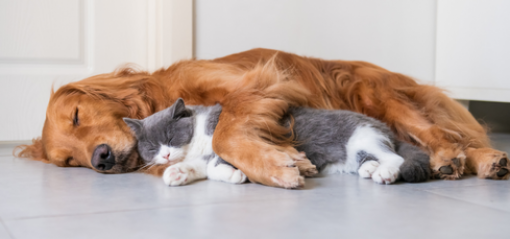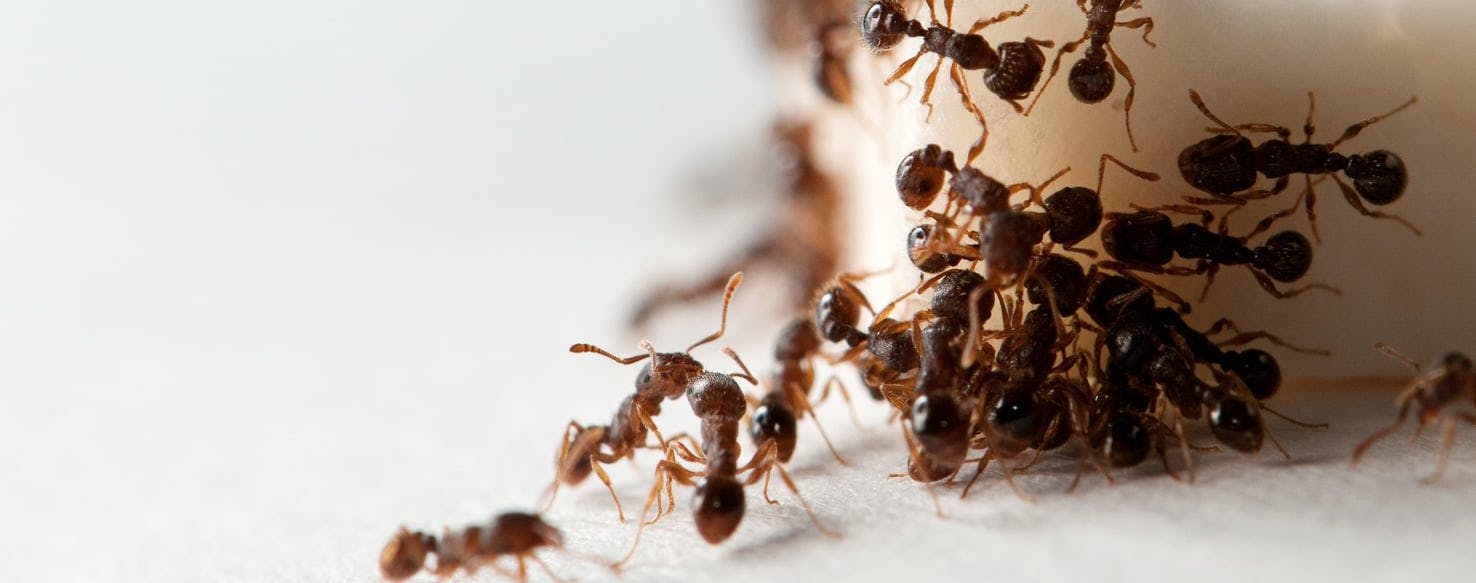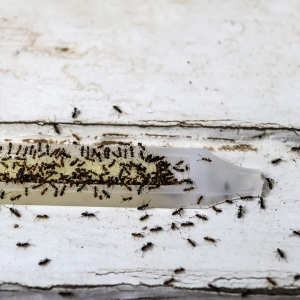Ant poison can be harmful to dogs, causing symptoms like vomiting and diarrhea. Before using ant poison, ensure it’s pet-safe and keep dogs away from the treated areas until it’s completely dry.
Consider natural and pet-friendly alternatives to protect your dog from potential harm. As a responsible pet owner, it’s essential to be aware of the potential risks associated with using ant poison around dogs. While some products may claim to be pet-safe, it’s crucial to take precautions to prevent accidental ingestion or exposure to harmful chemicals.
Understanding the proper use of ant control methods and considering non-toxic alternatives will help safeguard your dog’s well-being. Let’s explore the potential dangers of ant poison to dogs and discover safe strategies to keep your home ant-free without endangering your beloved pet.
Potential Risks Of Ant Poison To Dogs
Ant poison can pose a risk to dogs if ingested, potentially causing harm or even death. It’s crucial to keep ant bait and sprays out of reach to prevent accidental consumption by pets. Certain ant killers may contain toxins harmful to dogs, so caution is advised when using them in a household with pets.
Safety Of Ant Baits For Dogs
Ant baits are commonly used to control ant infestations in homes and gardens. Thankfully, ant baits are generally safe for dogs when used correctly. Ant baits typically contain small amounts of active ingredients that target ants specifically. These ingredients are not harmful to pets, including cats and dogs. However, it is important to ensure that your dog does not directly consume the ant bait, as it may cause mild gastrointestinal discomfort. To prevent this, it is recommended to place the ant bait in areas that are inaccessible to your furry friend, such as behind appliances or inside cabinets.Risk Of Ant Killer Sprays To Pets
While ant baits are relatively safe for dogs, ant killer sprays may pose a greater risk to pets if not used properly. Products like Raid or Ortho ant killer sprays are generally safe for pets as long as they are allowed to dry before pets come in contact with the treated areas. These sprays usually contain chemicals that can be harmful if ingested or inhaled by dogs. Therefore, it is crucial to keep your dog away from the sprayed areas until they are completely dry. Additionally, always follow the instructions provided by the manufacturer and consider using pet-safe alternatives or natural remedies when possible.Impact Of Ant Poison Ingestion On Dogs
Ingesting ant poison can have serious consequences for dogs. Some ant poisons, such as boron compounds found in certain products like AntRid, are relatively safe for pets with small ingestions. However, consuming large amounts of these substances can lead to severe gastroenteritis and potentially kidney injury in dogs. It is essential to seek immediate veterinary attention if you suspect your dog has ingested ant poison. The vet will be able to provide appropriate treatment and help minimize the risks associated with ant poison ingestion.In conclusion, while ant baits are generally safe for dogs, it is crucial to prevent direct consumption and keep them out of reach. Ant killer sprays should be used with caution and only after they have dried to minimize the risk to pets. If your dog accidentally ingests ant poison, seek veterinary assistance promptly. By being proactive and informed, you can ensure the safety and well-being of your furry friend when dealing with ant infestations.Ant Poison Alternatives For Pet Safety
When dealing with an ant problem in your home, it’s crucial to consider the safety of your pets. Using ant poison around your furry companions can pose severe health risks. Fortunately, there are effective and pet-friendly alternatives to conventional ant poisons that can help you keep your home free of these pesky insects without endangering your pets.
Diatomaceous Earth As A Pet-friendly Solution
Diatomaceous Earth (DE) is a natural and pet-safe solution for controlling ants and other household pests. It is non-toxic and environmentally friendly, making it an excellent alternative to chemical ant poisons. DE works by dehydrating and fatally damaging the exoskeleton of ants, ultimately leading to their demise. Simply sprinkle a thin layer of DE in areas where ants are present to effectively control their population without posing any harm to your pets.
Pet-safe Ant Control Sprays
When it comes to treating ant infestations in pet-friendly environments, utilizing pet-safe ant control sprays is imperative. These specially formulated sprays are designed to eliminate ants while being safe for use around pets. Brands like Mighty Mint and Safer offer all-natural peppermint and diatomaceous earth-based sprays that effectively repel and kill ants without posing any risk to your beloved pets. Always ensure the spray is pet-friendly by checking the product label and instructions before application, and follow all safety precautions provided.
Protecting Pets From Ant Poison Exposure
Ant poison and the safety of our beloved pets is a concern for many pet owners. While ant poisons are effective in eradicating ant infestations, they can pose a threat to the health and well-being of our furry companions if ingested or exposed to them. As responsible pet owners, it’s crucial to take proactive measures to ensure our pets are safeguarded from any potential harm that may arise from ant poison exposure.
Duration To Keep Pets Away After Ant Poison Application
After the application of ant poison, it’s imperative to keep pets away from the treated areas for a certain duration to prevent any potential harmful effects. The duration can vary depending on the type of ant poison used. It’s recommended to refer to the specific instructions provided by the product manufacturer for the precise period of time that pets should be kept away from the treated areas. As a general guideline, it’s advisable to keep pets away from the treated zones until the product has completely dried and the area is safe for pet contact. This ensures the safety of pets while allowing the ant poison to effectively address the ant infestation issue.
Recognizing Signs Of Ant Poisoning In Pets
While taking preventive measures to protect pets from ant poison exposure is crucial, it’s also important to be able to recognize the signs of ant poisoning in pets. Some common symptoms of ant poisoning in pets include vomiting, diarrhea, excessive drooling, tremors, seizures, weakness, and difficulty breathing. If any of these signs are observed in a pet and there is a suspicion of ant poison exposure, immediate veterinary attention should be sought to ensure the health and well-being of the pet.

Credit: animalpoisons.com.au
Handling Ant Poisoning Incidents In Dogs
In cases of ant poisoning incidents in dogs, it is important to act swiftly and take the necessary steps to ensure the well-being of your furry friend. Ant poisons contain toxic substances that can be harmful to dogs if ingested. This article will guide you through the potential symptoms of ant poison ingestion in dogs and the actions you should take if your dog consumes ant poison. By following these guidelines, you can provide the appropriate care and potentially save your dog’s life.
Potential Symptoms Of Ant Poison Ingestion In Dogs
If your furry companion ingests ant poison, it is crucial to be aware of the potential symptoms that may indicate poisoning. By recognizing these symptoms early on, you can seek appropriate veterinary care promptly. Here are some common symptoms to watch out for:
- Vomiting
- Diarrhea
- Loss of appetite
- Lethargy or weakness
- Tremors or seizures
- Excessive drooling
- Difficulty breathing
- Unusual behavior or disorientation
If you notice any of these symptoms in your dog, do not hesitate to take immediate action to ensure their safety and well-being.
Actions To Take If Your Dog Ingests Ant Poison
When faced with a situation where your dog ingests ant poison, quick and appropriate action can make a significant difference in their recovery. Follow these steps:
- Remove your dog from the area: If your dog is still near the ant poison, remove them from the location to prevent further exposure.
- Contact your veterinarian: Call your veterinarian or an emergency animal hospital immediately for guidance.
- Provide information: Provide your veterinarian with details about the type of ant poison ingested, including the brand name and active ingredients, if known.
- Observe your dog: Monitor your dog closely for any changes in behavior or worsening of symptoms.
- Do not induce vomiting: Do not attempt to induce vomiting in your dog unless specifically instructed to do so by a healthcare professional.
- Follow veterinary advice: Follow your veterinarian’s instructions regarding further treatment or potential antidotes, if available.
- Prevent future incidents: Take steps to prevent your dog from accessing ant poisons in the future by keeping them out of reach and using pet-safe alternatives.
Remember, prompt action and professional veterinary care are crucial in ensuring the best possible outcome for your dog in an ant poisoning incident. Stay vigilant and prioritize your dog’s safety to avoid such situations.
The information provided within this article is meant to offer general guidance and should not replace professional veterinary advice. If you suspect ant poisoning in your dog, always consult with your veterinarian or seek immediate veterinary care for proper diagnosis and treatment.
Common Concerns Related To Dogs And Ant Poison
Common Concerns Related to Dogs and Ant Poison
Toxicity Of Ant Poison To Different Pets
Ant baits are designed to target ants specifically, making them generally safe for pets like cats and dogs. However, it is important to ensure that pets do not ingest the ant poison directly, as large amounts can be harmful.
For example, boron compounds found in certain ant baits can cause severe gastroenteritis and potential kidney injury if ingested in significant quantities by pets.
Specific Ant Baits And Their Effects On Dogs
Some specific ant baits, such as Terro Liquid Ant Baits and Raid Ant Baits, are known to be safer options when used in households with pets. These products are formulated to target ants effectively while minimizing risks to dogs and other animals.
When using ant killer sprays, like Raid or Ortho, it is essential to allow the treated areas to dry completely before allowing pets to come into contact with them to prevent any potential harm.

Credit: www.fireants.org.au

Credit: wagwalking.com
Frequently Asked Questions On Will Ant Poison Kill A Dog
Can Fire Ant Poison Kill A Dog?
Fire ant poison baits are safe for pets, including dogs. The bait used to treat fire ants is specifically targeted to kill ants and is not harmful to pets. Ant killer sprays, like Raid or Ortho, are generally safe for pets if they are allowed to dry before pets come into contact with treated areas.
Is Ant Killer Harmless To Dogs?
Ant poison can be harmful to dogs if ingested. Take preventative measures to protect your dogs from ant killer.
Can Ant Killer Spray Kill Dogs?
Ant killer sprays can be harmful to dogs if ingested, but they are generally safe once dry.
How Long To Keep Dogs Away From Ant Poison?
Ant poison should be kept away from dogs for as long as the product instructions recommend, which is typically until the area is dry and safe for pets. Additionally, it is important to choose pet-friendly ant poisons that are specifically targeted to kill ants without harming pets like cats and dogs.
Conclusion
When it comes to ant poison and dogs, it is important to choose the right product. Fire ant baits specifically targeted for ants are safe for pets, including dogs. Ant killer sprays, once dried, are generally safe for pets. However, caution should always be exercised to prevent ingestion.
Boron compounds found in some ant baits can cause severe gastroenteritis and kidney injury in large amounts. If your dog ingests ant bait or shows signs of poisoning, it’s important to seek immediate veterinary care.

I’m MD Tanvir, and I bring years of expertise gained from working closely with pest control companies to the forefront. My journey in the industry has inspired me to launch Bug Battler, a platform aimed at equipping people with the know-how to combat pests autonomously. Through Bug Battler, I aim to empower individuals with practical insights to tackle pest infestations effectively.

